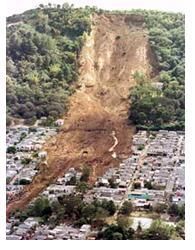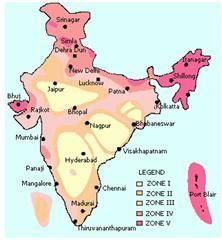UPSC Exam > UPSC Tests > Test: Natural Hazards & Disasters - 1 - UPSC MCQ
Test: Natural Hazards & Disasters - 1 - UPSC MCQ
Test Description
10 Questions MCQ Test - Test: Natural Hazards & Disasters - 1
Test: Natural Hazards & Disasters - 1 for UPSC 2024 is part of UPSC preparation. The Test: Natural Hazards & Disasters - 1 questions and answers have been prepared
according to the UPSC exam syllabus.The Test: Natural Hazards & Disasters - 1 MCQs are made for UPSC 2024 Exam.
Find important definitions, questions, notes, meanings, examples, exercises, MCQs and online tests for Test: Natural Hazards & Disasters - 1 below.
Solutions of Test: Natural Hazards & Disasters - 1 questions in English are available as part of our course for UPSC & Test: Natural Hazards & Disasters - 1 solutions in
Hindi for UPSC course.
Download more important topics, notes, lectures and mock test series for UPSC Exam by signing up for free. Attempt Test: Natural Hazards & Disasters - 1 | 10 questions in 10 minutes | Mock test for UPSC preparation | Free important questions MCQ to study for UPSC Exam | Download free PDF with solutions
Detailed Solution for Test: Natural Hazards & Disasters - 1 - Question 1
Detailed Solution for Test: Natural Hazards & Disasters - 1 - Question 2
| 1 Crore+ students have signed up on EduRev. Have you? Download the App |
Test: Natural Hazards & Disasters - 1 - Question 3
Debris flow that originates on the slope of a volcano is known as
Detailed Solution for Test: Natural Hazards & Disasters - 1 - Question 3
Test: Natural Hazards & Disasters - 1 - Question 4
Which one of the following states receive floods in the winter?
Detailed Solution for Test: Natural Hazards & Disasters - 1 - Question 4
Test: Natural Hazards & Disasters - 1 - Question 5
The river valley project has been constructed to check floods in india is
Detailed Solution for Test: Natural Hazards & Disasters - 1 - Question 5
Detailed Solution for Test: Natural Hazards & Disasters - 1 - Question 6
Detailed Solution for Test: Natural Hazards & Disasters - 1 - Question 7
Detailed Solution for Test: Natural Hazards & Disasters - 1 - Question 8
Detailed Solution for Test: Natural Hazards & Disasters - 1 - Question 9
Detailed Solution for Test: Natural Hazards & Disasters - 1 - Question 10
Information about Test: Natural Hazards & Disasters - 1 Page
In this test you can find the Exam questions for Test: Natural Hazards & Disasters - 1 solved & explained in the simplest way possible.
Besides giving Questions and answers for Test: Natural Hazards & Disasters - 1, EduRev gives you an ample number of Online tests for practice
Download as PDF



















